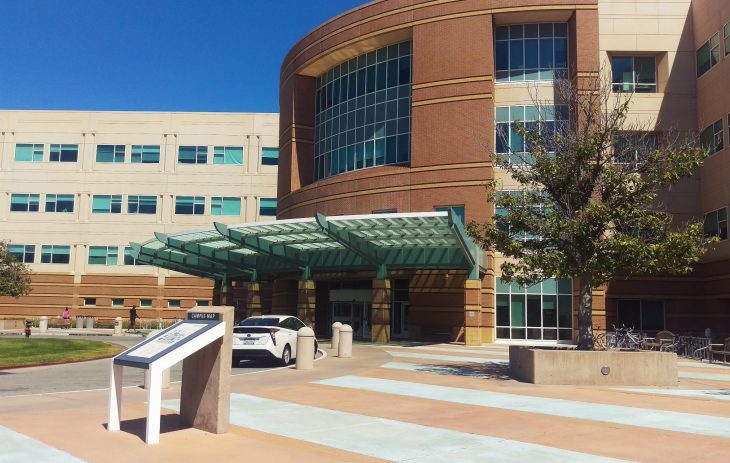About VA Palo Alto Health Care System Livermore Division
Palo Alto VA Medical Center-Livermore assists military veterans and their families. They offer substance use treatment, mental health support and PTSD care. You’ll find ’em located about 40 miles east of Oakland in a rural corner of Livermore, California. They’re tucked away from the urban core and surrounded by farmland. You can arrive via I-580 if coming from the San Francisco Bay Area.
They provide both outpatient and inpatient services to help veterans overcome substance use. The inpatient services may involve medically managed detox and inpatient therapy. This is a pretty intense recovery program that takes place in a structured environment in their residential facility. You’ll attend therapy sessions and educational courses on substance use and receive medication as relevant to your recovery. You’ll receive 24 hour guidance and support from their clinical team as necessary.
You can step down to the outpatient program upon completing inpatient care. This program equips you with practical coping skills that encourage independent living and prevent relapse. This is achieved through counseling and educational classes.
The beauty of it is that you’ll maintain your work and family obligations while receiving treatment. You can even attend sessions virtually through secured video conferencing platforms thanks to their telehealth care. This makes the whole thing flexible and comfy.
The alternative therapy provided complements the clinical practice to deliver holistic healing. This includes meditation and mindfulness training, massage therapy and acupuncture. Yoga, tai chi, and biofeedback are included as well. There’s recreation and creative art therapy. This program involves water/land based fitness and stress management activities. It also includes music therapy, relapse prevention activities and adaptive sports. If you’re able to have outings, the Del Valle Lake Trail isn’t too far away.
You can benefit from their social services if you’re homeless or at risk of losing your home. It doesn’t matter if that’s due to addiction, financial hardship, or unemployment. With this program, you can receive transitional or permanent housing, job training, and life skills education. More community recovery support services can be accessed through their social work.
Their smoke and tobacco cessation program can make it easy for you to quit smoking. They offer support to complement nicotine replacement therapy prescribed by your primary doctor. This includes using FDA-approved meds to manage nicotine withdrawal and the urge to smoke. In-person and phone counseling is also provided to address the psychology behind your tobacco use.
Other important services include HIV/hepatitis testing, support for victims of military sexual trauma and wound care.
The facility accepts TRICARE, Medicare, and Medicaid. Private insurances are acceptable as well. Financial and transportation aids are available if eligible.
Levels of Care
-
Inpatient
Inpatient and residential programs provide round-the-clock medical and emotional support as you live at the treatment facility. This level of care may be recommended if you have severe addictions or mental health conditions since it removes outside distractions and allows you to focus solely on therapy.
-
PHP
Partial hospitalization programs provide comprehensive treatment in a structured setting during the day but allow you to return home at night. These programs offer a balance of inpatient and outpatient rehab and provide intensive support without full time residency.
-
Outpatient
In outpatient therapy, you’ll attend therapy sessions several times each week while living at home. This is ideal if you have a strong support system and a lower risk of relapse. Outpatient treatment offers flexibility to maintain work, school or family obligations.
-
Aftercare
Aftercare programs provide ongoing support after you complete a rehab program. They may include several components to help you maintain sobriety including therapy, community support groups and relapse prevention strategies. This gives you a network of resources as you reintegrate into your daily life.
-
Dual Diagnosis
Dual diagnosis programs address substance use disorders and co-occurring mental health conditions simultaneously. This integrated approach to care improves the likelihood of long term recovery and stability by addressing the root causes of addiction.
Detox Service Setting
-
Inpatient Detox
Inpatient detox occurs in a dedicated treatment facility. You’ll live there around the clock and receive intensive medical support and supervision to help manage your withdrawal symptoms. It is suitable for individuals with moderate to severe addictions as it ensures a stable detox environment.
-
Outpatient Detox
Outpatient detox gives you access to medically supervised withdrawal services while still allowing you to live at home. You’ll attend a clinic for treatment and monitoring. This flexible option is suitable for those with mild to moderate withdrawal symptoms who have strong support systems.
-
MAT
Medication assisted treatment combines medication and counseling to manage withdrawal and reduce cravings for opioid and alcohol addiction. Medications may include methadone, buprenorphine or naltrexone. MAT is tailored to your needs so you can actively participate in your treatment journey.
Programs
-
Adult (18+)
Adult programs address the substance use and life challenges specific to adults. Therapists can deliver sessions in individual, group and family settings. Services often include job support and life skills training in a structured environment.
-
Alcohol Detox
Alcohol detox programs offer medical support to help individuals withdraw safely from alcohol. Your care team may use medications to ease your symptoms and provide medical monitoring to address complications.
-
Cognitive Behavioral Therapy
Cognitive behavioral therapy focuses on changing harmful thought patterns and behaviors associated with addiction. You’ll learn healthier coping mechanisms by identifying and replacing negative thoughts. This improves your emotional resilience and decreases your relapse potential.
-
LGBTQ Friendly
LGBTQ friendly programs create an inclusive and affirming space for recovery. Treatment is sensitive to issues like discrimination and stigma. You’ll receive support and therapy that respects and acknowledges your unique experiences.
-
Men
Men's programs address substance use while also considering the social pressures, family roles and mental health concerns that are specific to men. You’ll learn healthy coping mechanisms as you build emotional resilience and develop communication skills.
-
Military / Veterans
Military and veteran programs offer specialized support for clients who served in the armed services. Programs focus on reintegration and healing within a structured and supportive environment that acknowledges the unique struggles of military life.
-
Opioid Detox
Opioid detox uses medications to ease severe withdrawal symptoms. It also includes medical supervision to help you manage potential complications. These services allow you to stabilize and begin a recovery plan.
-
Seniors (65+)
Senior programs address the unique needs of older adults like chronic pain, grief and isolation. Programs include peer support and medical oversight for age related health concerns. The goal is to improve quality of life and promote sober aging.
-
Women
Women's programs offer a safe and supportive space to focus on gender specific issues such as trauma, family roles and mental health conditions. Therapists tailor the sessions to address women's needs and foster empowerment in a healing and nurturing environment.
-
Young Adult (18 - 25)
Young adult programs are designed for individuals who are transitioning into adulthood. Topics of discussion typically include identity, independence and peer relationships. Providers may also offer life skills training and career support.
Payment Options
- Payment Assistance
- Medicaid
- Medicare
- Military Insurance
- Private Insurance
- Self Pay
Accreditations
-
 SAMHSA
SAMHSA
-
 Joint Commission
Joint Commission
Contact
4951 Arroyo Road
Livermore, CA 94550





